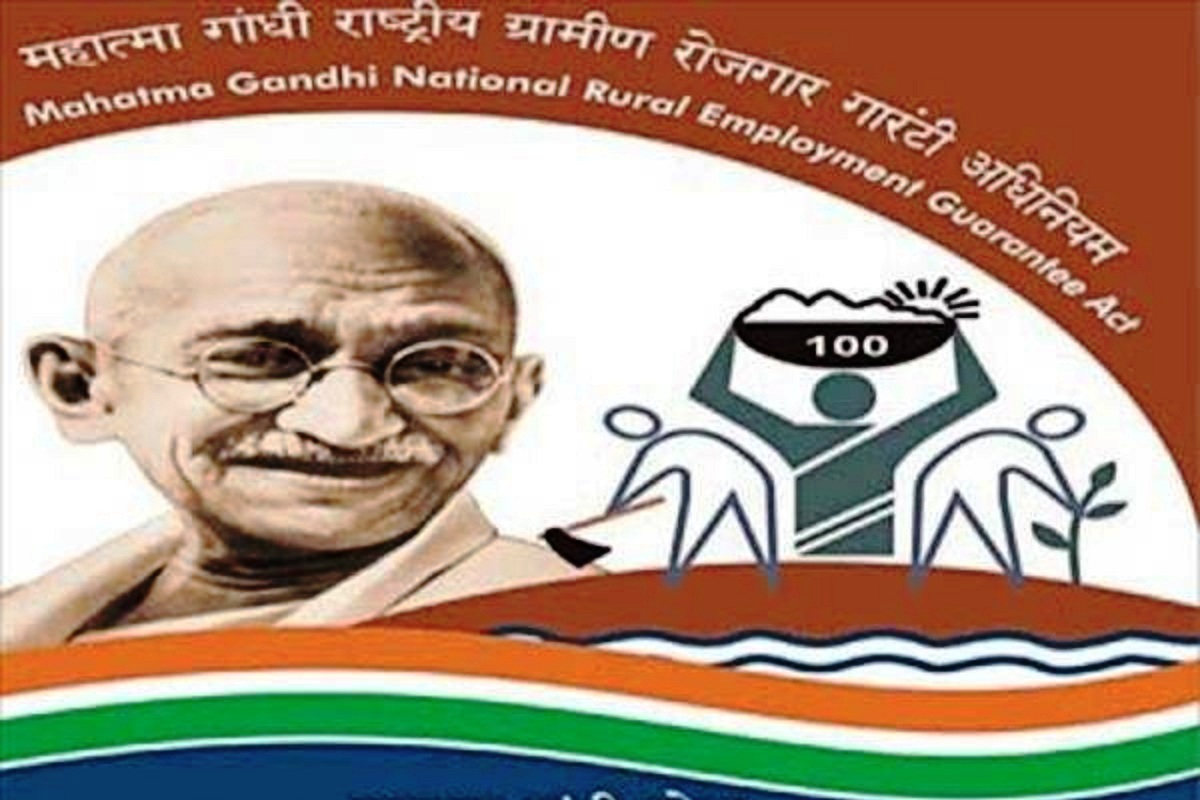RJD has given only 2 things to Bihar, ‘jungle raj’, corruption: Modi in Gaya
The PM said that the Opposition alliance has no vision for the state.
As per the directive issued by the Department (June 2010), order of deployment of tractors was to be issued with date by the Programme Officer concerned with a certificate that use of machines in work is not leading to wage displacement.

(File photo)
The Comptroller and Auditor General (CAG) of India which is empowered to audit all receipts and expenditures from the Government of India and the State governments has detected large-scale irregularities in the implementation of the Mahatma Gandhi National Rural Employment Guarantee Scheme (MGNREGS) in Bihar.
Although the scheme, launched in 2006 by the previous United Progressive Alliance (UPA) government at the Centre, bans the use of machines in works executed under the scheme because it would erode employment and defeat the purpose of the programme, the CAG found rampant use of tractors in carrying out various works.
As per the directive issued by the Department (June 2010), an order of deployment of tractors was to be issued with a date by the Programme Officer concerned with a certificate that use of machines in work is not leading to wage displacement.
Advertisement
“But in 14 test-checked Gram Panchayats, earth filling in road and residence was done using tractors in 84 works involving Rs1.04 crore without certifying the need for use of tractor by the Programme Officer,” says a CAG report which was tabled on the floor of the state assembly yesterday. According to the CAG, the test-checked units replied that as the Programme Officer accorded the administrative approval of work, separate certificate of engagement of tractors in MGNREGS works was not required.
“The reply was not acceptable as the Programme Officer, after assessing site requirements, was required to issue a specific order regarding deployment of tractors,” the CAG report states.
The report also states how the scheme, once described as a “stellar example of rural development” by the World Bank, has failed to serve the purpose with little about 3.34 per cent of people being issued the job cards by the authorities.
The report said although Bihar had the highest number of landless casual labourers in the country at 88.61 lakhs, 69 per cent of them (60.88 lakh) were surveyed and only 3.34 per cent were issued job cards. This is in sharp contrast to the objectives of the scheme which provides for at least 100 days of guaranteed wage employment in a financial year to every rural household whose adult members volunteer to do unskilled manual work.
The CAG audit also found that only nine to 14 per cent of registered disabled persons and five to nine per cent of senior citizens (60 years and more) were provided employment under the scheme from 2014 to 2019 in Bihar. The report states that the state government didn’t notify the rate of payment of unemployment allowance and rules for governing the procedure for payment of unemployment allowance although as per the Act an applicant is entitled to daily unemployment allowance if he was not provided employment within 15 days of receipt of applications for the job.
The report further said the achievement against the target of focus areas works was very low and ranged between less than one per cent and 23 per cent during 2016-18 in the state. According to the report, the ineffective and non-existent monitoring mechanism, lack of transparency in the implementation of the scheme and non-conduction of information education and communication activities were the main bottlenecks faced in the implementation of the scheme.
The report further stated that other factors like low wage to MANREGA workers, delayed payments to the workers, non-payment of compensation for delayed payment of wages, non-payment of unemployment allowance, huge liabilities pending for payment of wages and cost of material for the last one to eight years, shortage of manpower at all implementing units level and lack of necessary infrastructure at Gram panchayat level have dealt a severe blow to the Scheme which was once the flagship project of the UPA government headed by Prime Minister Manmohan Singh.
Belgian-born Indian development economist Jean Dreze had conceptualized and drafted the first version of the Scheme.
Advertisement